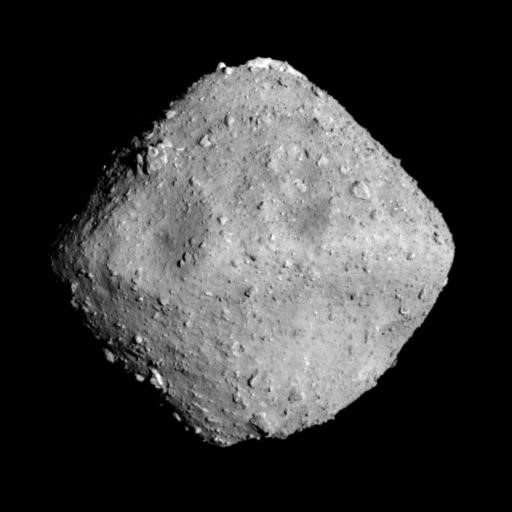

Japan Aerospace Exploration Agency (JAXA) confirmed that Hayabusa2, JAXA’s asteroid explorer satellite, rendezvoused with Ryugu, the target asteroid.
On June 27, 2018, JAXA operated Hayabusa2 chemical propulsion thrusters for the spacecraft’s orbit control. Confirmation of the rendezvous is based on the following data analyses:
From this point, JAXA plans to conduct exploratory activities in the vicinity of the asteroid, including scientific observation of asteroid Ryugu and surveying the asteroid for sample collection.